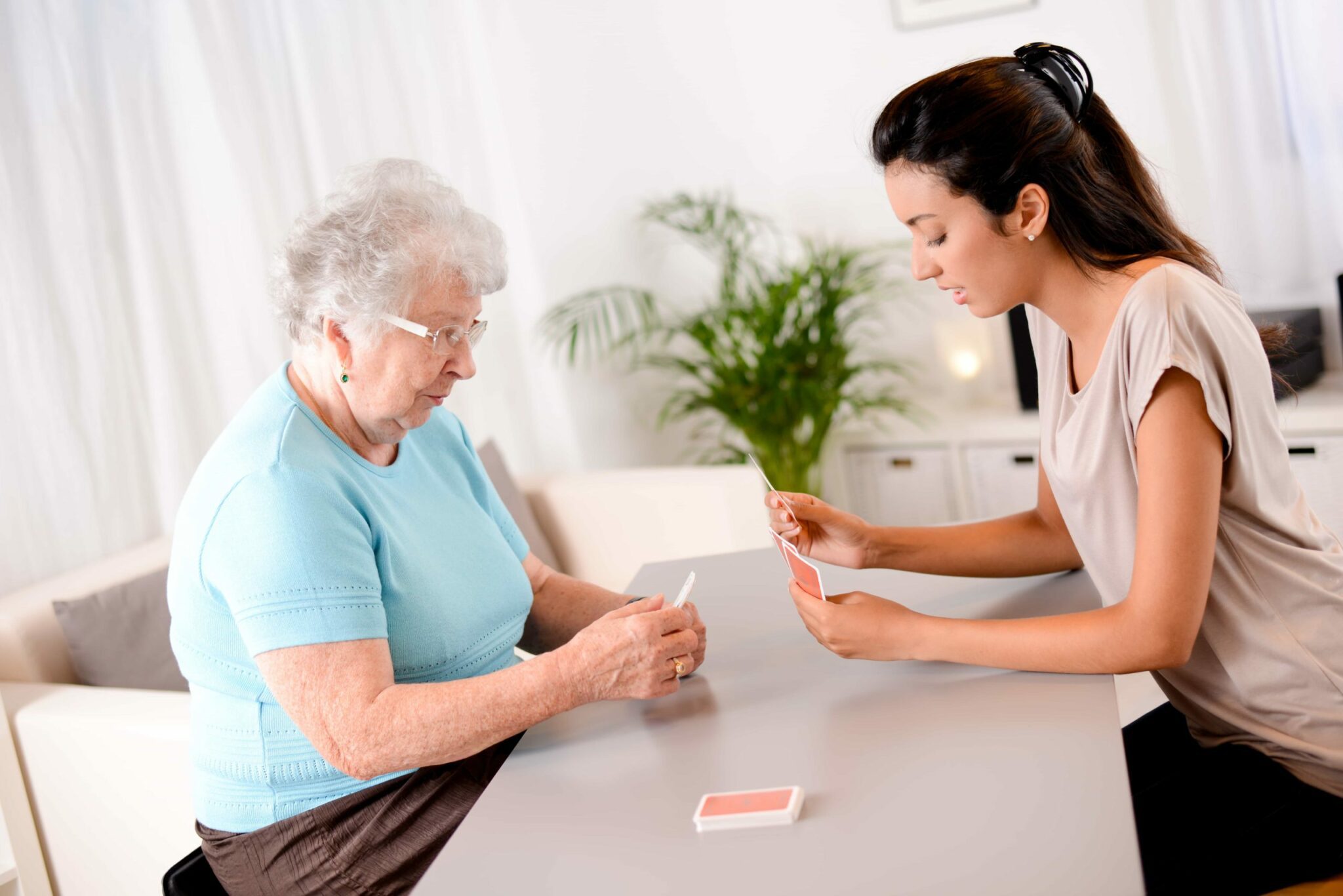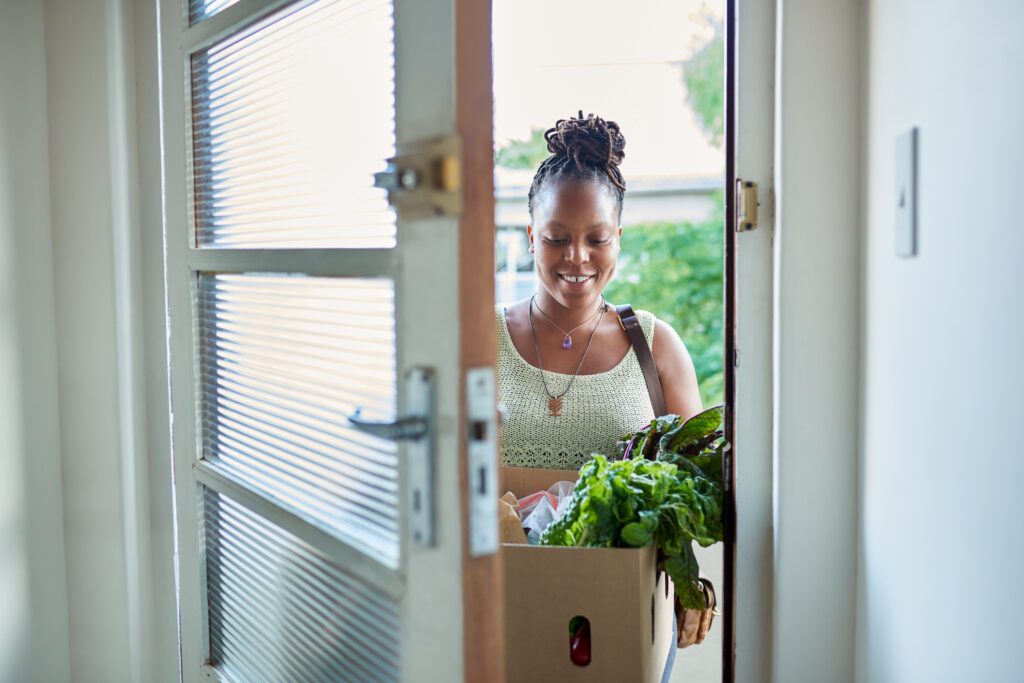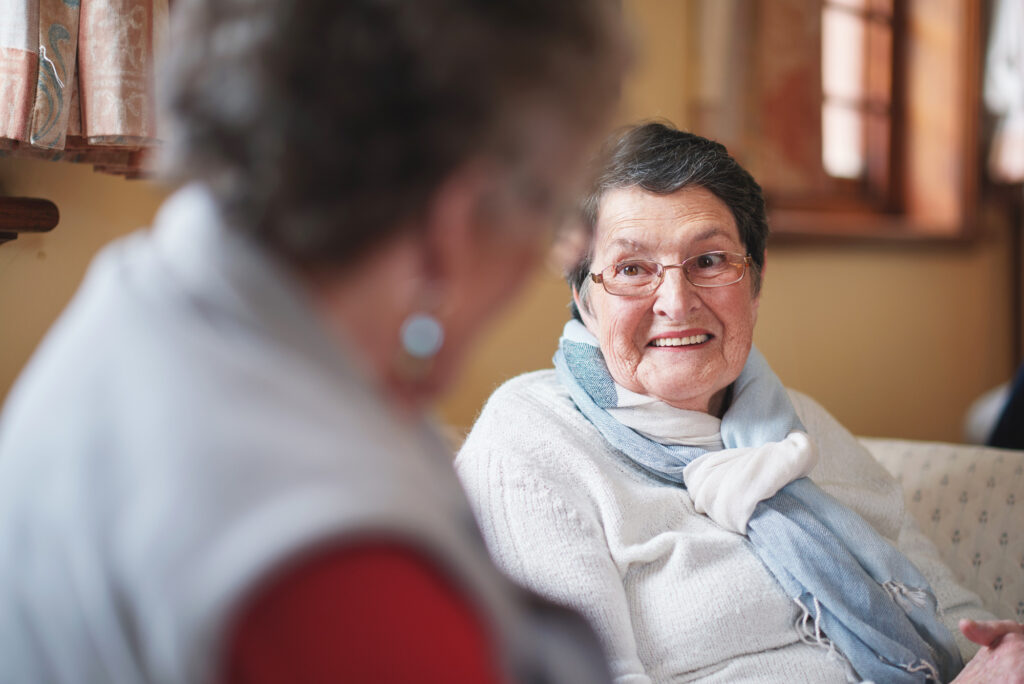24-hour care at home
At Elder, we provide tailored 24-hour care, so your loved one can stay safe, supported and surrounded by the comforts of home.

Used by 5,000+ families across the UK

More value
On average, services facilitated by Elder are 35% cheaper than traditional alternatives.
More control
Set your care hours from our custom built app. Manage and collaborate care with family.
More choice
View carer profiles, read reviews from other families, and arrange a video/phone call ahead of placement.
More support
From our family support specialist to our in-house clinical team, we’re on hand if you need us.

We are an award-winning marketplace connecting families and carers.
Every care story is personal, and ours is no different. Our founder, Pete, was inspired to help families like yours after struggling to find the right care for his own Gran, Frances. Fast forward to today and our platform has connected thousands of families and self-employed carers. Our tools personalise every care experience, eliminate unnecessary paperwork, and empower families to take control of later life.
What is 24-hour care?

24-hour care at home, sometimes called round-the-clock or live-in care, provides constant support for those with ongoing or complex care needs. A dedicated carer stays in the home to assist with everything from personal care and mobility to medication and daily routines.
24-hour care ensures that someone is always there – day or night – to offer reassurance, respond to emergencies, and help maintain a safe, comfortable routine at home. It’s a flexible alternative to residential care, allowing individuals to remain in familiar surroundings with one-to-one support tailored to their needs.
How does 24-hour care at home work?
24-hour care at home means having a dedicated carer or team of carers available at all times to provide continuous support with daily tasks, personal care, and medical needs. This is usually arranged through a shift-based system, with one carer supporting during the day and another at night.
This approach ensures that there’s someone always alert and ready to help, whether that’s assisting with morning routines, managing medication, or offering reassurance during the night. It’s a flexible and safe alternative to residential care, tailored to the individual’s health, lifestyle, and preferences.
24-hour care can support a wide range of needs, including elderly care, dementia care, and companionship care – all delivered in the comfort of home.
Assessment and care planning
Before arranging 24-hour care at home, it’s important to understand the level of support needed. A care needs assessment helps determine whether round-the-clock support is the right option.
You can request a care needs assessment through your local authority, your GP, or – if the person is currently in hospital – it may be arranged by the hospital discharge team.
The assessment considers:
- Whether the person can continue living safely at home
- Whether they need help with daily activities or nursing care
- Any existing medical conditions and how they may progress over time
- Additional factors like sleep quality, night-time behaviour, and emotional wellbeing.
24-hour care is often recommended for people living with degenerative conditions such as Alzheimer’s or Multiple Sclerosis, especially in later stages. These conditions can make daily tasks more difficult and may lead to sleep disturbances, confusion, or a risk of falls and wandering at night.
In these cases, a personalised care plan ensures the right level of support is in place, providing comfort, safety, and peace of mind.
What are the benefits of 24-hour care at home?
24-hour home care offers a unique blend of personalised support, independence, and peace of mind. Unlike residential care, it allows individuals to stay in familiar surroundings, helping to maintain routines and reduce confusion or distress, especially for those living with dementia or progressive conditions.
Familiar surroundings and daily routine
Remaining at home supports emotional wellbeing, especially for older people or those with memory loss. Familiar sights, routines, and personal belongings can help reduce anxiety, confusion, and behaviours like sundowning.
Constant, personalised support
With 24-hour care, help is always available – day or night. Carers assist with personal care, medication, mobility, and more, offering a reassuring presence for both the person receiving care and their loved ones.
Reduced health risks
Around-the-clock care helps lower the risk of falls, infections, and missed medication. It ensures better hydration, nutrition, and hygiene – key to maintaining overall health and preventing hospital admissions.
Care tailored to individual needs
Care plans are completely bespoke, built around the individual’s medical needs, lifestyle, and preferences. Carers are carefully matched not only by skills, but by personality, whether that means sharing a language, preparing favourite meals, or offering companionship.
Greater independence and peace of mind
24-hour home care promotes supported independence. It allows people to continue living life on their terms, with the safety net of dedicated, compassionate care, and gives families peace of mind that help is always at hand.
24-hour care vs live-in care: What’s the difference?
While both live-in care and 24-hour care provide support at home, they differ in the level of support and continuity.
Live-in care involves a single carer who lives in the home and provides support during the day – typically up to 10 hours of active care. Outside of these hours, they’re available on a standby basis at night, provided overnight disturbances are minimal (usually fewer than three times). This arrangement is best suited to those who need help during the day, but can sleep through the night without regular intervention.
In contrast, 24-hour care involves two or more carers working in shifts to provide constant, round-the-clock care, both day and night. There’s always an alert and awake carer on duty, ready to assist with anything from personal care and medication to mobility support and emergency needs at any hour.
This higher level of care is often essential for individuals with complex medical needs, advanced dementia, or conditions that require frequent night-time assistance. It’s also ideal for those who are at higher risk of falls or who feel anxious when left alone at night.

Is 24/7 home care an alternative to a care home?
24-hour home care is a practical and personal alternative to a care home, offering one-to-one support in the comfort of your own home. It allows individuals to stay in familiar surroundings while receiving tailored, round-the-clock care that meets their unique needs and routines.
| 24-hour home care | Care homes | |
|---|---|---|
| Personalised, one-to-one care | ||
| Stay in the family home | ||
| Unrestricted family access | ||
| Keep elderly couples together | ||
| Tailored meals | ||
| Keep pets, routines and hobbies |
Real stories: Colin and Dulcie’s experience
How much does 24-hour care at home cost in the UK?
The cost of 24-hour live-in care in the UK can vary depending on a range of factors, such as the type and level of care required and whether multiple carers are needed for added support.
Most live-in care packages for one person typically cost between £1,200 to £2,000 per week. At Elder, the average cost is around £1150 per week, with tailored quotes for couples who want to stay together at home.
Unlike care homes, 24-hour home care offers dedicated one-on-one support, making it a more cost-effective option for couples, as only one carer is needed instead of paying for two care home beds.
Financial support for 24-hour care
Financial assistance may be available through benefits such as Attendance Allowance, Pension Credit, Carer’s Allowance, and Personal Independence Payment. Additionally, your local authority may offer direct payments to help cover care costs, depending on your needs and assessment.
NHS funding for long-term care
In some cases, NHS Continuing Healthcare may cover the full cost of 24-hour care at home. To see if you’re eligible, speak to your GP and request an NHS Continuing Healthcare checklist.
A 4-step plan for funding care
At Elder, we recommend a four-step approach to securing funding for care:
- Apply for relevant benefits to increase available income.
- Check your eligibility for NHS funding for long-term care.
- Access local authority funding through a care needs assessment.
- Consider using savings or assets to cover care costs if needed.
How to arrange 24-hour home care with Elder
1. Share your care request
Tell us your care requirements in our request form, including the type of care you’re looking for, any specialist skills you need, and what daily life looks like.
2. Select your carer
You’ll start receiving profiles of suitable self-employed carers within 24 hours. Chat to them online or arrange a phone or video call, before choosing who you like best.
3. Manage care
Once your agreement with your carer begins, use your MyElder account to chat with them and the Elder team, manage your schedule and care information, and find respite cover if you need it.
FAQs about 24-hour care at home
-
How is a 24-hour care plan structured?
A 24-hour care plan typically involves 2 live-in carers working in shifts to provide round-the-clock support. Each carer works up to 10 hours a day and is on-call during breaks and rest hours. Two spare rooms are usually needed to accommodate both carers. When a carer takes time off, a vetted respite carer steps in to ensure continuity of care.
-
What if my loved one needs help during the night?
If there’s just one live-in carer, they can support up to three wake-ups per night. We can set up alerts like bells or alarms to notify them. If night-time needs go beyond this, we’ll help transition to a two-carer plan to ensure safe and responsive care.
-
When is a second carer needed?
A second carer is recommended when care needs are continuous, including frequent night-time assistance or supervision for complex conditions like dementia, Alzheimer’s, or advanced cancer. These situations often require two carers to ensure safety and comfort at all times.
-
How much is a 24-hour care plan?
At Elder, we offer tailored 24-hour care plans based on your loved one’s individual needs – not two separate carer rates. Our team will provide a personalised quote after understanding your situation. Visit our pricing page or speak with a care advisor to learn more.
-
Who typically needs 24-hour care?
Older people with progressive conditions, physical disabilities, or complex health needs may benefit from 24-hour care. This includes those living with dementia, Alzheimer’s, Parkinson’s, MS, or chronic pain, who need consistent support with daily tasks and night-time care.



